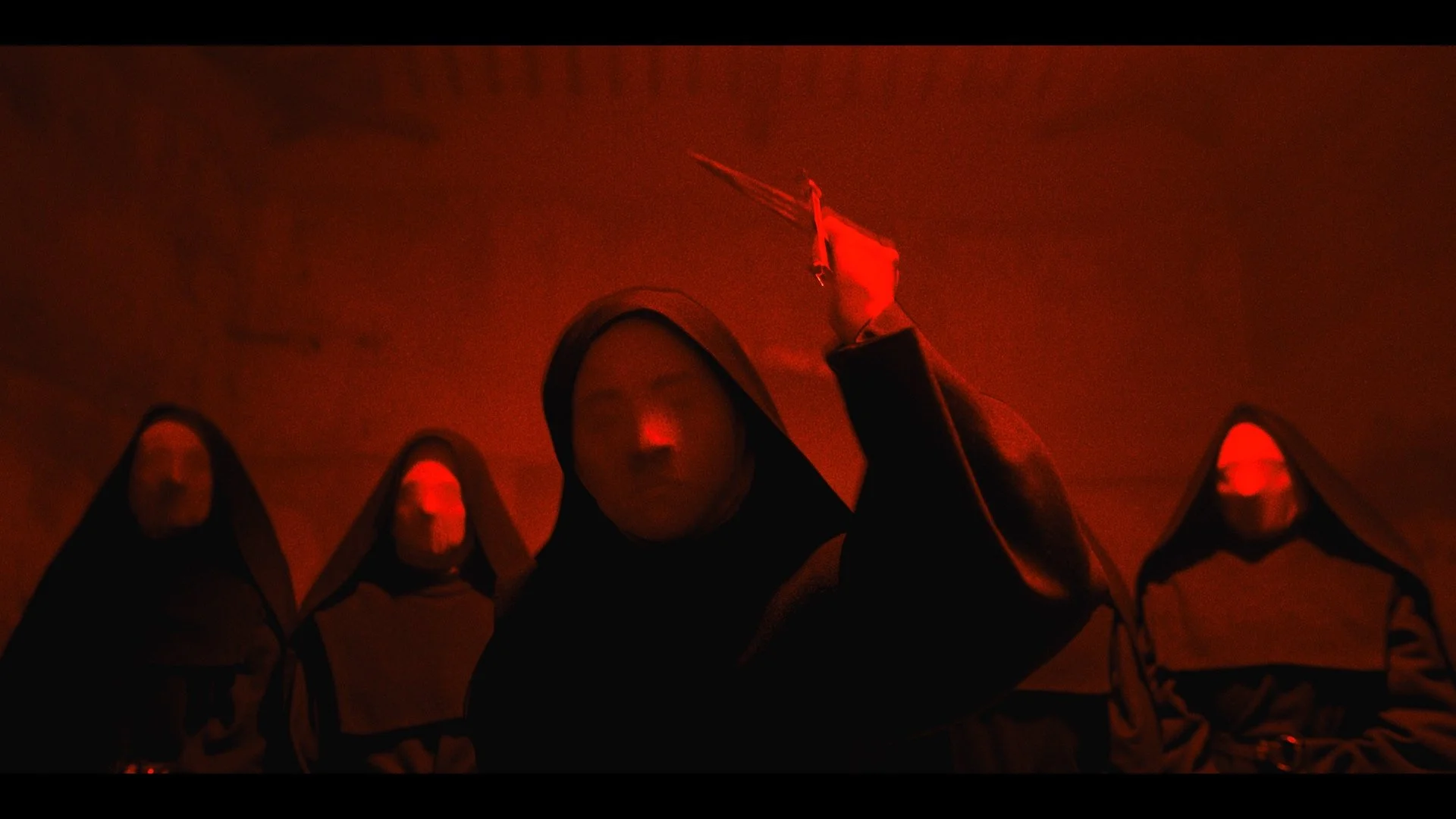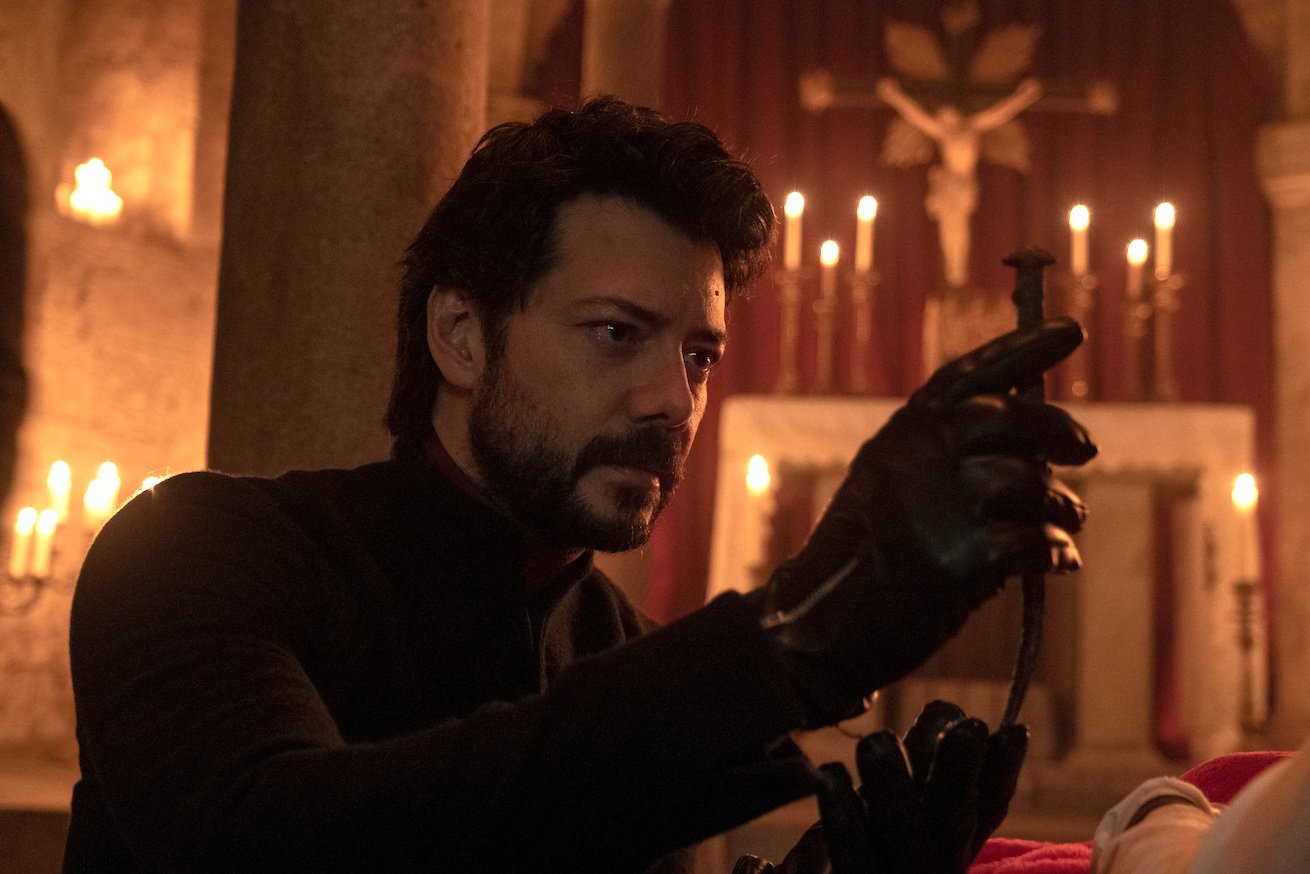High Conception
Nuns are making a comeback to tell us all how gross the Church is when it comes to women’s bodies.
Immaculate
Director: Michael Mohan • Writer: Andrew Lobel
Starring: Sydney Sweeney, Álvaro Morte, Benedetta Porcaroli, Giulia Heathfield Di Renzi, Dora Romano
USA • 1hr 29mins
Opens Hong Kong May 30 • III
Grade: B
It would seem that since The Conjuring 2 dropped the demonic nun Valak on us the nunsploitation sub-genre has found itself in the grips of a mini-renaissance. Like most great exploitation subsets, it peaked in heavily Catholic 1970s Europe (duh), but the last few years have seen a flurry of cheap and dirty shockers pivoting on a young sister taking her vows and then dealing with the fallout of that. The recent string – including the conventional possession thriller The Nun by Corin Hardy, and Paul Verhoeven’s arthouse spin, Benedetta – may not be as opaque or auteurist as their earlier, erm, sisters, but the temptation (sorry) to use the Church as the backdrop for a modern critique of fanaticism and systemic control of women is hard to resist. The year started with Arkasha Stevenson’s entirely unexpected delight The First Omen, and it continues with Immaculate.
Director Michael Mohan gathered together his regular DOP Elisha Christian, composer Will Bates, editor Christian Masini and star Sydney Sweeney from 2021’s erotic thriller The Voyeurs (that’s another sub-genre that needs a comeback) for a gruesome mash-up of body horror, psychological thriller and Big Church repression horror that is surprisingly grim; it earns its Cat III. Yes, this is a (on-the-nose) bloody meditation on choice, birth, genetic ethics and organised religion’s centuries-long habit of claiming dominion on women’s bodies, but it’s also a traditional horror film, with oodles of creaking floorboards and candlelit explorations of the creepy convent. The former works a bit better than the latter but the whole is a win.
Immaculate begins uncomfortably similar to The First Omen, and early in its lean run time it feels like we’re getting the same film. Young, devout and sweet Sister Cecilia (Sweeney, Anyone But You, Madame Web) arrives in Italy at the invitation of an exclusive convent in the middle of nowhere. We know she’s sweet because the all-business Sister Isabelle (Giulia Heathfield Di Renzi) tells her so, and notes, “That wasn’t a compliment.” Okay then. Cecilia’s sort-of roommate is Gwen (Benedetta Porcaroli), a smoking, swearing runaway from Milan, and her sponsor is the handsome Father Tedeschi (Álvaro Morte, Amazon’s The Wheel of Time), because priest in movies and on TV are always handsome and if this were accurate the Church wouldn’t have dwindling congregation numbers. Anyway, Cecilia’s first few nights are fraught with nightmares and random sickness, and when she sees a doctor it turns out she’s pregnant. Huh?
This is where Immaculate thankfully starts down its own gory road. Tedeschi, Mother Superior (Dora Romano, surprise, The First Omen) and Cardinal Merola (Giorgio Colangeli, Italy’s buzziest film of 2023, There's Still Tomorrow) call it a miracle – the saviour is back – Isabelle is furious, and Gwen is suspicious. Needless to say the convent, which also keeps one of the spikes supposedly driven into Jesus’s hand on the cross in a secret vault, has a deep, dark secret that Mohan and writer Andrew Lobel leave breadcrumbs for, in between classic (irritating?) jump scares and Christian’s long shadows and dark corners.
The film really kicks into high gear when Cecilia confirms her pregnancy and finds herself at the whim of the Church; Tedeschi and Merola take over her body, brushing off Cecilia’s requests to see a “real” doctor at a “real” hospital, and literally taking away Gwen’s voice when she speaks up in Cecilia’s defence. Above all, Immaculate does what The First Omen could (or would) not: it sticks to its nihilistic guns. I get that Omen is positioned as (possibly) the first in a series, or part of an ongoing franchise that needs its ending to dangle just enough to pick up and run with in another film. Even still, it’s hard to imagine that film going quite as hard on the central nun’s ideological transformation. Cecilia DGAF, and Sweeney once again proves there’s more to her than her boobs (though why she has to keep proving this is a mystery). She gives Cecilia a wholly contemporary identity: devoted to God but able to acknowledge the wonders of science. She doesn’t chalk up assault as the will of the Lord. It’s attempted murder. She’s not keen on hurting God’s creatures but if it means it will get her beyond the damn gates, so be it. It’s a character built layer by layer, and when we finally get to the moment that will define Cecilia – more than the one that brought her to the Church to begin with – it’s the only brutal way to go and she goes there’s fearlessly. Amen, sister. — DEK



